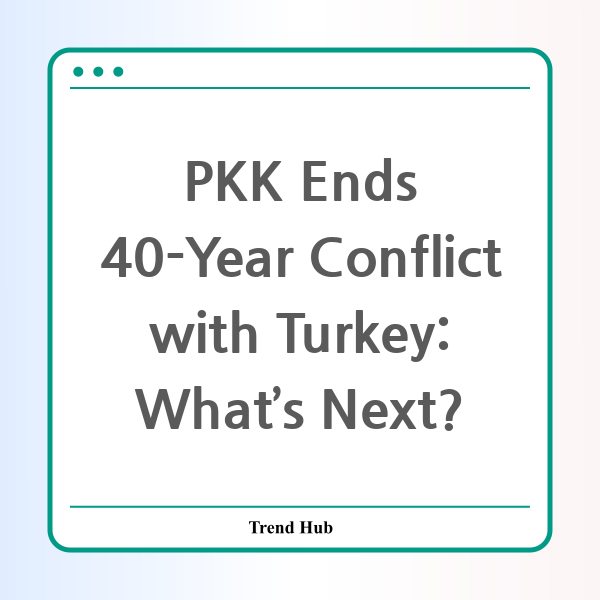* This website participates in the Amazon Affiliate Program and earns from qualifying purchases.

Will the End of the PKK Conflict Signal a New Era for Kurdish Rights in Turkey?
In a remarkable development, the Kurdish insurgent group, the Kurdistan Workers' Party (PKK), has announced its decision to end a conflict that has spanned more than four decades. This announcement marks a pivotal moment in Turkish-Kurdish relations, one that could reshape the political landscape in Turkey and the broader region.
The conflict began in the early 1980s, primarily as a fight for Kurdish independence and later evolved into a struggle for autonomy and rights within the Turkish state. After years of violence and failed peace negotiations, the leadership of the PKK has stated that they have completed their "historic mission" and wish to transition to a political resolution of the Kurdish question.
This significant announcement followed a directive from Abdullah Ocalan, the imprisoned leader of the PKK, who articulated a vision of pursuing Kurdish rights through democratic engagement rather than armed struggle. Ocalan's influence remains significant, even from prison, as he called for the PKK to disband in favor of political avenues for change.
The PKK's withdrawal from armed conflict is a double-edged sword that raises questions about the future of Kurdish rights in Turkey. On one hand, it presents an opportunity for the Turkish government to engage in genuine democratic reforms that address longstanding grievances. On the other hand, there are concerns about whether the government will respond adequately and whether the promises of reform will be honored.
As the PKK lays down its arms, attention is now turning to Ankara for the necessary democratic reforms and guarantees for the rights of the Kurdish people. Political actors like the pro-Kurdish Democratic Regions Party (DEM) are calling for the release of Kurdish politicians incarcerated for non-violent offenses, including Selahattin Demirtas, a prominent figure in Kurdish politics. This demand highlights the need for a broader political discourse to facilitate reconciliation and healing within the society.
Moreover, the disbandment of the PKK could lead to significant changes in how the Turkish government approaches Kurdish populations. Historically, various administrations, including that of President Recep Tayyip Erdogan, have attempted to resolve the Kurdish issue through a combination of military action and negotiations, often resulting in limited success.
In recent years, advancements in military technology and strategic military initiatives against the PKK have shown that the Turkish state is intent on maintaining control. However, as the PKK moves towards disarmament, the focus shifts to how Turkey will structure its political response. The PKK has urged Turkish lawmakers to accept their responsibility in fostering a peaceful and democratic society. The path forward requires cooperation among multiple stakeholders, including political parties and civil society organizations.
The anticipated response from the Turkish government is critical in determining the success of this historic moment. There are expectations of legal reforms that would facilitate the return of PKK members who have not participated in violent activities. Moreover, discussions around the relocation of PKK leadership and the potential return of exiles to Turkey or arrangements for continued activism in Europe add layers to the complex political tapestry.
As this story unfolds, one thing remains clear: the end of the PKK conflict opens up new avenues for dialogue, reform, and potential reconciliation in Turkey. It is a moment that could redefine not only the relationship between the state and its Kurdish citizens but also influence the regional dynamics in the Middle East.
* This website participates in the Amazon Affiliate Program and earns from qualifying purchases.